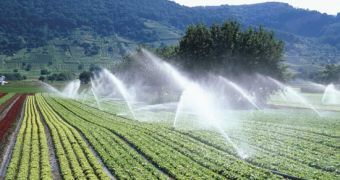Seeing how the global food industry has been severely impacted by recent developments in terms of weather patterns, and environmental conditions, the case is now made that farmers living in the developing regions of sub-Saharan Africa and South Asia need be allowed to manage their own local water resources, as their small-scale solutions are much more efficient than national water policies.
According to recent findings made public by the International Water Management Institute, small-scale irrigation systems are bound to boost the efficiency of agricultural practices carried out in the aforementioned parts of the world.
More precisely, yields could potentially increase by as much as 300 per cent in some regions, something that in turn would translate into significant amounts of money being added to present household incomes in sub-Saharan Africa and South Asia.
Speaking on behalf of the International Water Management Institute, director general Colin Chartres explained how, “We've witnessed again and again what happens to the world's poor—the majority of whom depend on agriculture for their livelihoods and already suffer from water scarcity—when they are at the mercy of our fragile global food system.”
Furthermore, “However, farmers across the developing world are increasingly relying on and benefiting from small-scale, locally-relevant water solutions,” reports Eurek! Alert.
To put it bluntly, this recent research concerning available water sources, and their use in agriculture showed that farmers living in indigenous communities have already figured out a way to implement proper water management technologies, even if such projects sometimes required financing from local funding.
Therefore, provided that small-scale farmers are allowed and helped continue implementing local irrigating schemes, they could very soon become a noteworthy driver for food security and economic growth.
As Meredith Giordano puts it, “Cheap pumps and new ways of powering them are transforming farming and boosting incomes all over Africa and Asia. Simple tools for drilling wells and capturing rainwater have enabled many farmers to produce more crops in the dry season, hugely boosting their incomes.”

 14 DAY TRIAL //
14 DAY TRIAL //